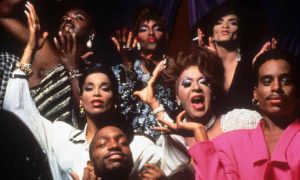LGBTQ+ Cinema: Ones to watch
7th February 2022

This month at Marshall’s, we will be engaging and celebrating with LGBTQ+ History, and learning how we can be a better ally. This will be through learning about notable people and events, understanding what it means to be an ally and celebrating LGBTQ+ culture.
In this post, we will be looking at a selection of LGBTQ+ films – something that is so important for representation for these communities, so that they can feel seen and for their issues to be recognised. Without this representation, these communities would feel even more isolated, and feel like their narratives aren’t being told. The following films either include LGBTQ+ characters, or the themes of the film are related to LGBTQ+ issues.
Pride (2014)
Pride is inspired by true events. Set in the summer of 1984, a time when Margaret Thatcher was in power and the National Union of Mineworkers were on strike, the film follows a London-based group of gay and lesbian activists who want to raise money to support the strikers’ families. Initially rejected by the Union, the group identifies a tiny mining village in Wales and sets off to make their donation in person.
Portrait of a Lady on Fire (2019)
Set in 18th-century France, this film follows a young painter, Marianne, who arrives on an island to paint the portrait of Heloise, a woman soon to be married. Heloise does not know a portrait is being made of her, and over time the relationship between the two young women deepens. The film is critically acclaimed and is shot beautifully.
Paris is Burning (1990)
Filmed in the mid-to-late 1980s, Paris is Burning is a critically acclaimed documentary film – it follows the ball culture of New York City and the African-American, Latino, gay, and transgender communities involved in it. It shows a part of history that isn’t always covered.

Moonlight (2016)
Set across at 15-year time frame, a young African American man deals with his identity and sexuality while experiencing the everyday struggles of childhood, adolescence, and adulthood. It is considered one of the best films of the 21st Century, and the film won Best Picture at the Academy Awards – the first LGBGTQ+ film to do so.

